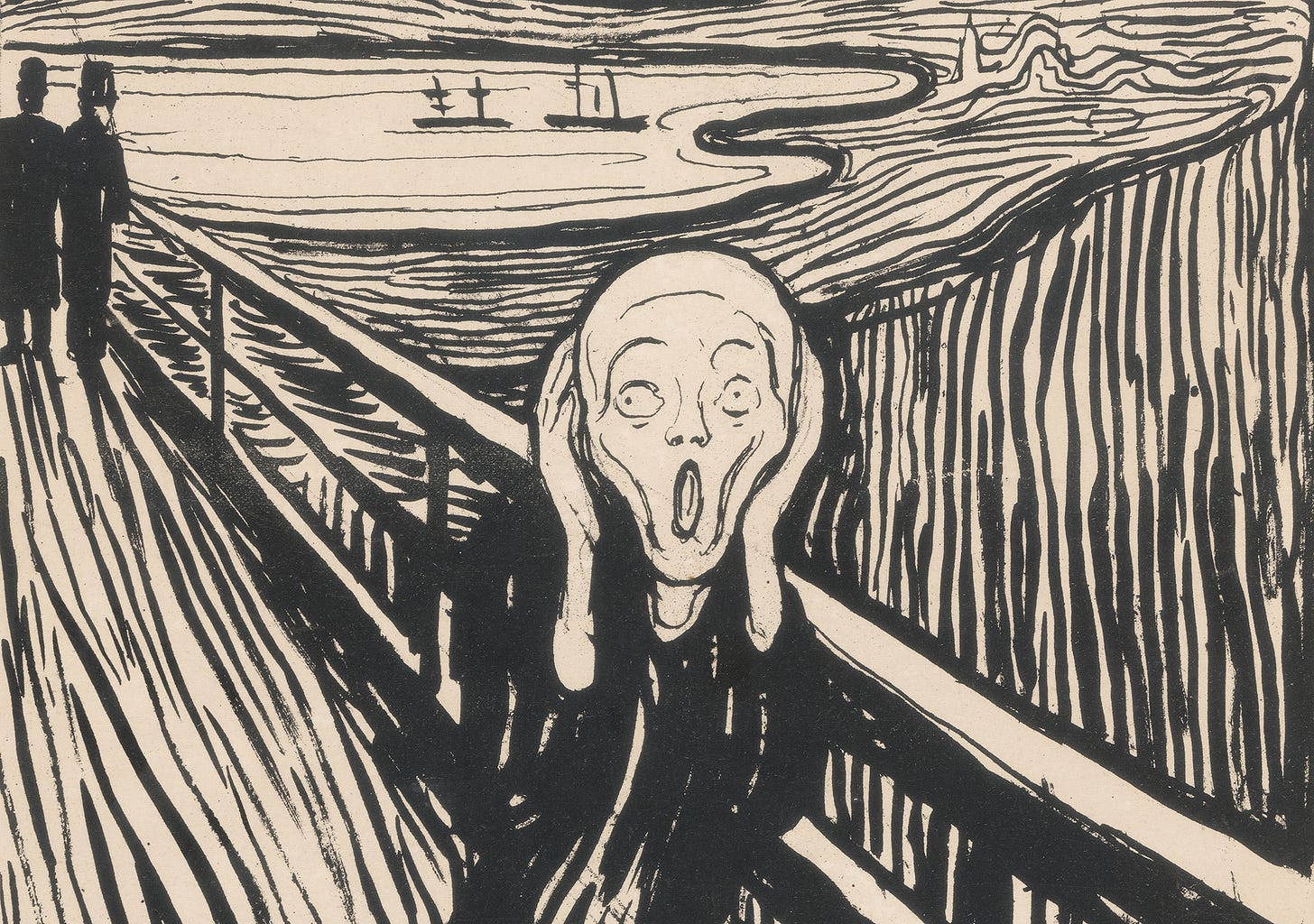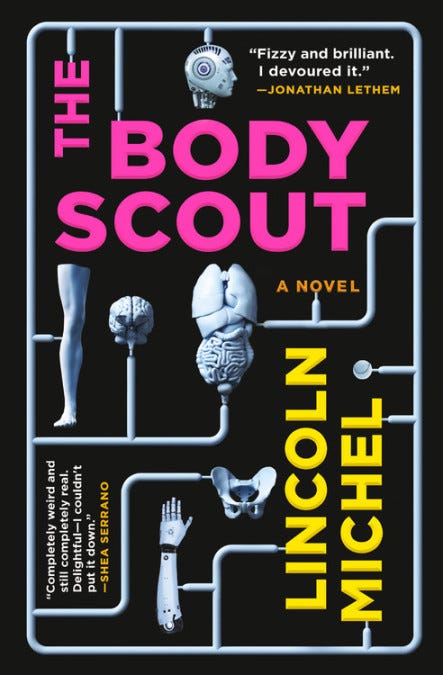Sales Numbers, Goodreads Reviews, and Other Ways to Drive an Author Mad
Some rambling thoughts on the randomness of publishing and the importance of persistence.
When you’re a writer, almost everyone tells you to “never read Goodreads!” It’s good advice. Goodreads is a chaotic place. Even the most acclaimed stands-the-test-of-times literary works are filled with one star reviews (example “the whole thing is almost all dialogue” for THE PLAY Romeo and Juliet…) so you can imagine how your average contemporary writer fares. You might get a negative review for anything. Too much cursing. Not enough cursing. Your high fantasy novel not being the Western the reader wanted for some reason. I recently saw a review of an anthology I co-edited that complained the book was filled with short stories about crimes. The name of that anthology? Tiny Crimes.
But as much as Amazon or Goodreads reviews are painful, they’re also important for sales in our algorithm age. And since the burden of marketing is placed more and more on authors shoulders, that means we have to increasingly do things like beg our friends and social media followers for reviews. It’s icky. But you have to do it.
(Oh yeah that reminds me, did you read my just-released novel The Body Scout and if so can you please review on Amazon or Goodreads? 🙏🙏😬😬😞😞.)
Some authors are more inclined toward self-promotion than others, but I can’t imagine many authors love it. For one thing, it’s almost impossible to know when it’s working or when you need to stop. How many times should you be posting a picture of your novel on Instagram? Or tweeting out a link to a review? When does it actually stop helping sales and when is it actually just causing people to mute you or talk shit about you in the group chat?
But sales. You gotta think about sales. It’s the absolute last thing you want to think about as an author. And that’s why as much as Goodreads can drive you mad, there’s something far riskier: BookScan.

I tweeted this before any of my novel’s sales were reported, but when I’d been poking around to try and understand the market. I do think there’s value in doing that. At least for me, it helps me temper my own expectations. Still, I can imagine some friends of mine are cringing just reading that. Sales numbers are something so private and shameful for most authors that it’s the last thing we want anyone else to know. Yet we also can’t fully ignore them, as sales do go a long way to determining if you can publish another book.
Secret Numbers and Fake Numbers
For those who don’t know, BookScan is about the only measures of sales that one can find in publishing. Individual authors will get their actual sales data once or twice a year from their publisher, but there’s no other way to know what the overall market looks like.
The public numbers are often 100% made up. For example, publishers will frequently tout their announced “print run” for a forthcoming book to try and build buzz. Yet the actual first print run that occurs months later often bears no relation at all to the public one. It might be higher, but most of the time it’s much lower as actual buy orders—from places like Amazon and Barnes and Noble—come in and adjust expectations. (Not that this stops the book media from breathlessly repeating the fake number in profiles and articles….)
Amazon sales ranks and New York Times best seller lists don’t give one any sense of actual numbers. The amount required to get on the NYT list, for example, varies wildly week to week. BookScan itself only tracks part of the market—they claim around 75%—although they don’t track all formats and most authors will find their actual sales numbers are often 2-3 times what BookScan reports. Still, it’s a useful gauge of the market overall.
The fact that book sales (and similarly author advances) are hidden is a big relief to authors but also somewhat unusual. It’s not like actor salaries or movie box office numbers are hidden from the public. We know the salaries of basketball and baseball players. Etc. But books just aren’t as popular as those things and the money is (typically) so much lower that it’s not something we want to share. Or, thankfully, something most readers care about.
What do books really sell? In a recent post, I broke down some actual numbers. The rough take away is that the kind of literary fiction and great genre books you’re hearing about—the kind that get NYT reviews, award longlists, and so on—are probably bookscanning somewhere between 3k and 300k, which might mean more like 6k to 600k in total sales when adding in ebooks, audio, etc. There are not infrequent exceptions. Every year there seems to be a couple buzzy and/or award-winning books that “break through” to mainstream readers and sell high six or even multiple millions of copies. Think The Goldfinch or All the Light We Cannot See.
The Perpetual Randomness of Publishing
You might be looking at the those numbers are thinking “uh, 3k to 300k is a gigantic range dude!” And it is! That’s one of the wild things about seeing actual sales numbers. One of the things that feels surreal. It’s not just that some books get no marketing and no coverage and end up not selling. We all know that. But it’s also that books that do get tons of coverage and buzz and award consideration often sell very little.
It can be hard not to think it’s “unfair” that these authors get so much coverage and acclaim and prestige imprint contracts if few people are reading them. (Though fairness has little to do with it…) But it’s also scary to know that the same could happen to you. Every part of publishing is hard. It’s hard to finish a draft. It’s hard to polish it to a decent book. It’s hard to get an agent. It’s hard to sell to an editor. It’s hard to get attention for a book that is being published. And even then—even if you’ve been extremely lucky and extremely hard working and jumped over every hurdle while rolling snake eyes every time—it still might not be enough.
And it’s fair to note the flipside of this, which is that sometimes a book takes off with little marketing budget behind it. Sometimes an author just stumbles into success. And the same things can happen to the same author! You might write four books of equal quality, and books 1-3 sell nothing and book 4 becomes a bestseller. Or your first three might be bestsellers and the fourth is a pebble in a puddle.
There’s a kind of pure, chaotic, and perpetual randomness to publishing that can be… hard to take.
It’s not just that your book might not catch on in the market. It might not really get a chance to. Your editor might switch houses, leaving your book “orphaned” (industry term) without an advocate at the press. Or the big accounts (Amazon, Barnes and Noble, etc.) might simply decide not to order many copies. Maybe they don’t like the cover design. Maybe something else. Maybe there are massive supply chain issues because of a global pandemic. A bunch of things that are both beyond your control and unrelated to the contents (much less the quality) of your writing can determine the success of your book.
And then when success does come, it can be equally random. A surprise award. A movie adaptation. More or less a lucky lotto ticket falling in your lap. (A case in point: Paul Harding’s Tinkers bookscanned a mere 1,120 before winning a shocking Pulitzer. It bookscanned over 360,000 !! a year later.) This kind of thing does happen. Indeed, if you’ve been in the writing world long enough you’ve seen the wheel of publishing fate spin both ways for countless writers you know. So the despair is also mixed with this desperate hope that wheel of fortune might just spin your way.
So What Can You Do?
There is only one thing you can do, I think. Log out of BookScan. Close Goodreads. Log off Twitter. And go write.
Maybe go take a hot shower or a walk in the park first. Read a chapter of a book. Get another coffee. Then sit down and write.
I know it’s not a very original thought. But clichés can be true. Maybe it’s the only true thing. The art is the art. The work is the work. Most of publishing is just out of our control. We can tweet about our books a few times and post a few pics on Instagram, but ultimately the book will sell what it will sell and get the reviews it will get based on the whims of fate. The only thing we can do is enjoy the work, get something finished, and take another spin of the wheel.
I am, of course, writing this message mostly to myself. So I’m logging off now and heading outside with a book to read and a notebook and pen to write in.
Stray bits:
Despite my anxious ramblings here, things have been really lovely for my book’s launch so far. The reviews have been very nice with The New York Times raving: "The Body Scout blends noir, cyberpunk and sports into something at once timeless and original... a wild ride, sad and funny, surreal and intelligent." Even my Goodreads and Amazon averages are (so far) very nice!
So, you know, consider checking it out?
One of the promo things every author has to do (other than tweet) is write a bunch of articles. So I published quite a few in the last two weeks if you’re interested. At Tor, a defense of David Lynch's strange and messy Dune. At Lit Hub, I talked about genre fiction as a generative space. And in Publishers Weekly, a list of my favorite “strange dystopias” in fiction.








